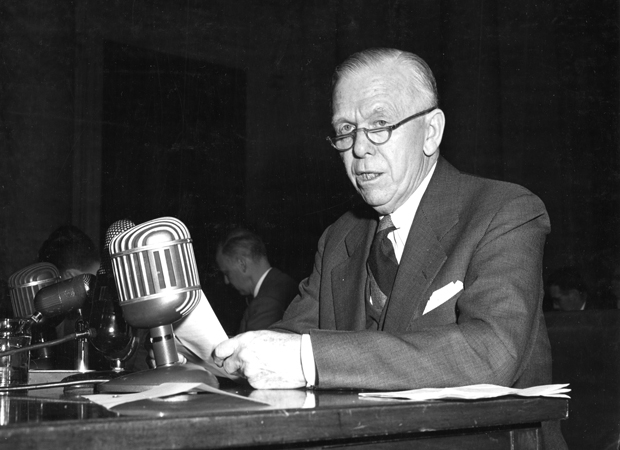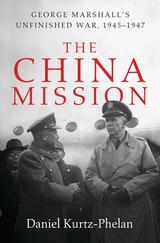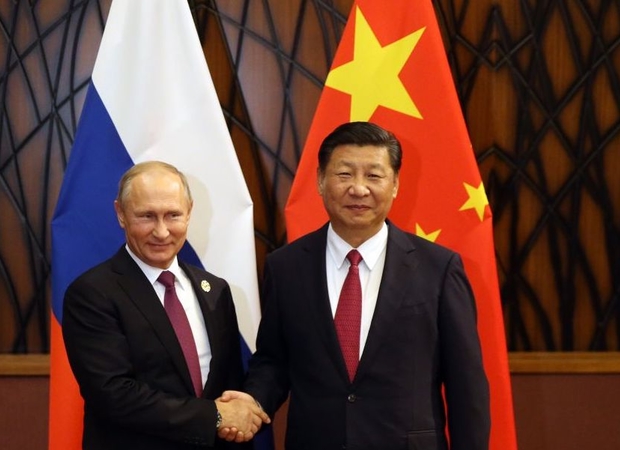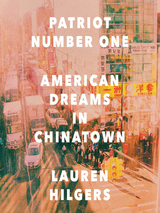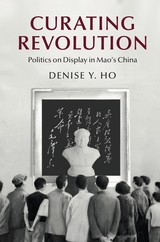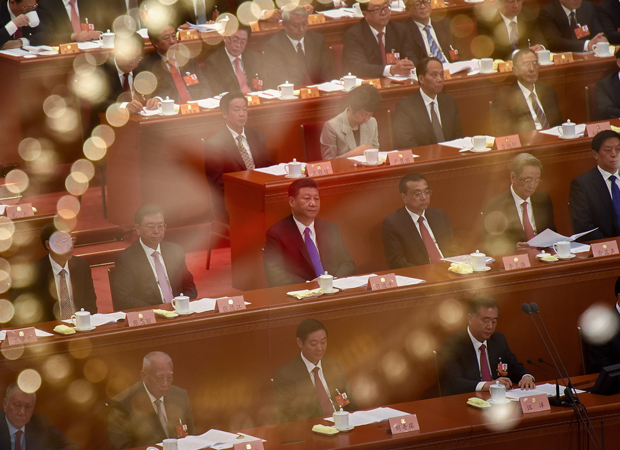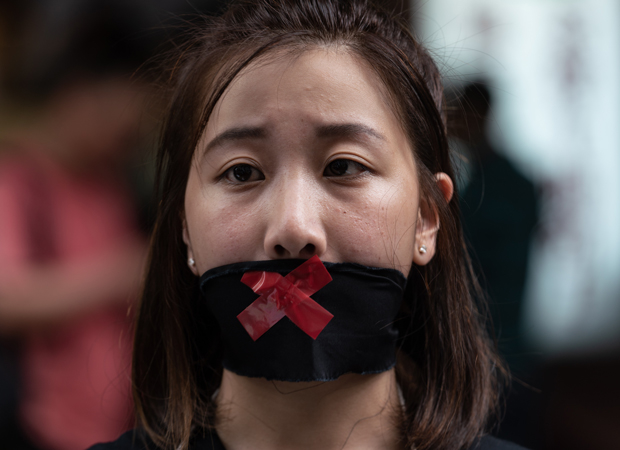
Breaking Eggs Against a Rock
from New York Review of BooksBlood Letters is an important new biography of Lin Zhao, the journalist who was executed 50 years ago this spring for criticizing the Communist Party’s misrule in the 1950s and 1960s. After years of imprisonment, torture, and mental deterioration...
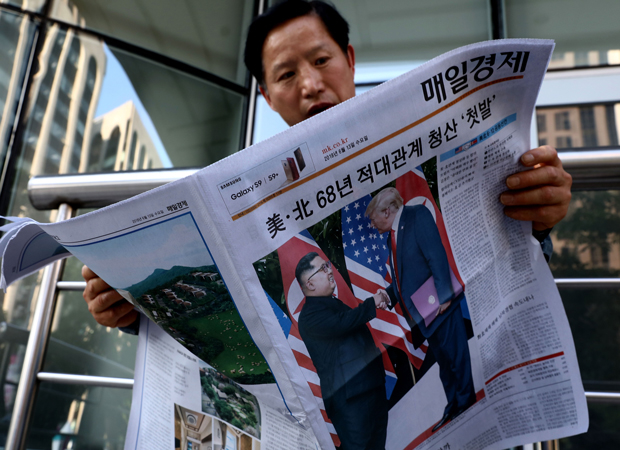
North Korea Diplomacy and U.S.-China Relations
from Carnegie ChinaPaul Haenle joined Kaiser Kuo to discuss next steps for DPRK diplomacy and tensions between the United States and China over trade, Taiwan, and the Belt and Road Initiative. Haenle shared his experience working as White House representative to...
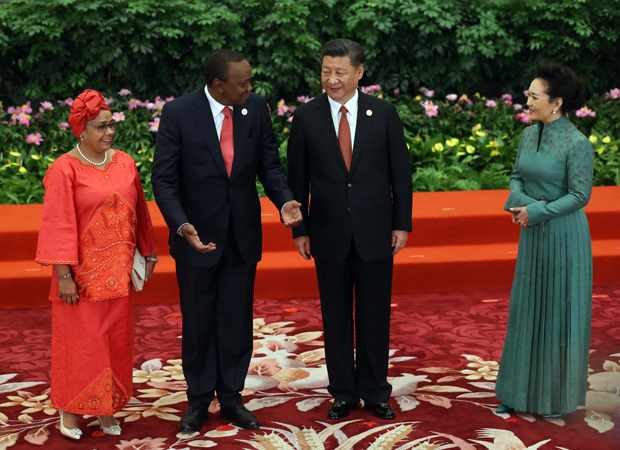
Whose Problem is Kenya’s Debt: Kenya’s or China’s?
Nairobi-based international development economist Anzetse Were suggests in a new paper that Kenya’s leaders, not China, should be the ones held accountable for borrowing too much money without a detailed, transparent plan on how to repay the...
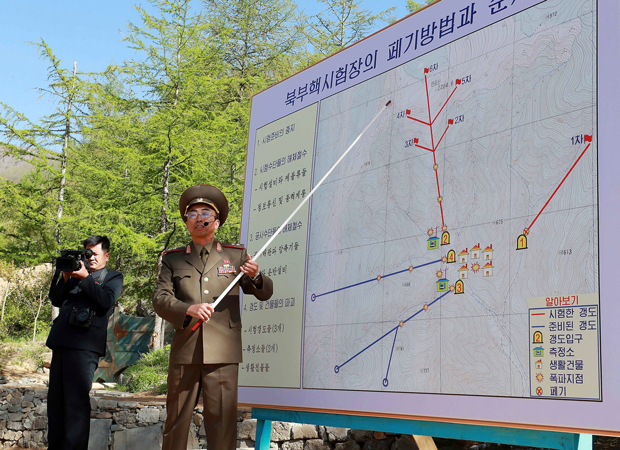
China and the U.S. Nuclear Posture Review
from Carnegie ChinaThe Trump administration’s Nuclear Posture Review, released earlier this year, emphasized the growing threat of nuclear competition in the Asia-Pacific, specifically with reference to Russia, North Korea, and China. In this podcast, Tong Zhao, of...

Should African Governments Welcome Or Be Wary of Chinese Infrastructure Investment?
China announced a U.S.$60 billion financing package for African states to build out new roads, airports, railways, and other needed infrastructure. While no one questions the need for infrastructure, there are legitimate concerns as to whether it...

Is This Really the Best Time for a China-Africa Summit?
Does it still make sense for China to put on big, expensive mega-summits with African leaders, like FOCAC, which will take place in Beijing in September? Facing a slowing economy and a potentially devastating trade war with the U.S., maybe China...

Technology and Innovation in an Era of U.S.-China Strategic Competition
from Carnegie ChinaChina has taken significant steps to implement national strategies and encourage investment in order to surpass the U.S. in high tech fields like artificial intelligence. In this podcast, Paul Haenle sat down with Elsa Kania, adjunct fellow at...

Poisonous Pandas
A favorite icon for cigarette manufacturers across China since the mid-20th century has been the panda, with factories from Shanghai to Sichuan using cuddly cliché to market tobacco products. The proliferation of panda-branded cigarettes coincides with profound, yet poorly appreciated, shifts in the worldwide tobacco trade. Over the last 50 years, transnational tobacco companies and their allies have fueled a tripling of the world’s annual consumption of cigarettes. At the forefront is the China National Tobacco Corporation, now producing 40 percent of cigarettes sold globally. What’s enabled the manufacturing of cigarettes in China to flourish since the time of Mao and to prosper even amidst public health condemnation of smoking?
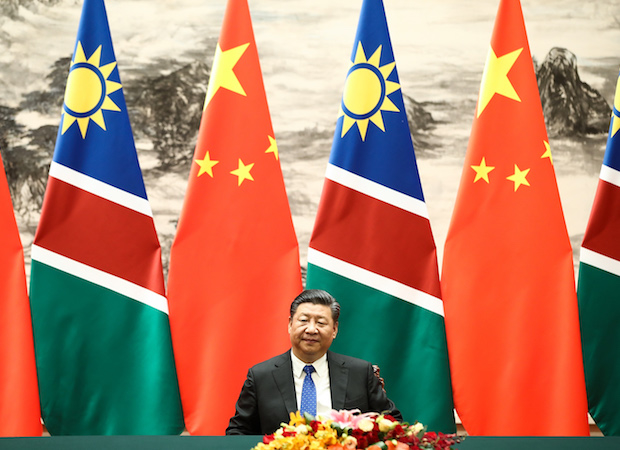
Where Does Africa Fit in Xi Jinping’s Worldview?
The Forum on China-Africa Cooperation summit will take place at a delicate time for Chinese President Xi Jinping, as he confronts enormous challenges related to the ongoing trade war with the United States and, at the same time, huge...

Imperial Twilight
Imperial Twilight tells the story of the China’s last age of ascendance and how it came to an end in the 19th-century Opium War. The book paints an enduring portrait of an immensely profitable and mostly peaceful meeting of civilizations at Canton over the long term that was destined to be shattered by one of the most shockingly unjust wars in the annals of imperial history.
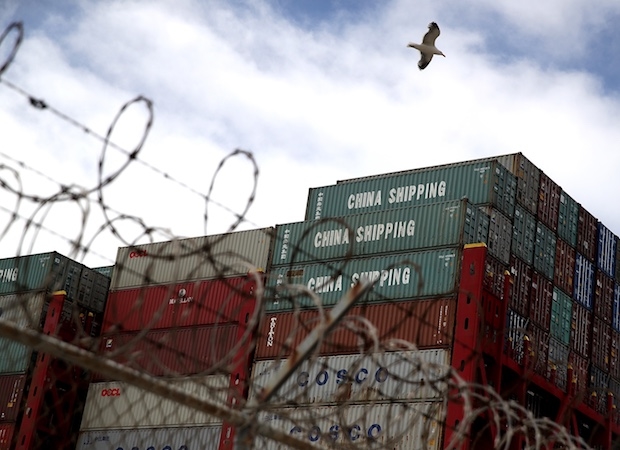
U.S.-China Tensions over Trade and Technology
from Carnegie ChinaChen says deteriorating bilateral relations are due to both the Trump administration’s trade policies and to a growing U.S. consensus that foreign policy toward China should be reevaluated. The Chinese government’s view that industrial policy is...

Blood Letters
Blood Letters tells the astonishing tale of Lin Zhao, a poet and journalist arrested by the authorities in 1960 and executed eight years later, at the height of the Cultural Revolution. Openly and steadfastly opposing communism under Mao, she rooted her dissent in her Christian faith—and expressed it in long, prophetic writings done in her own blood, and at times on her clothes and on cloth torn from her bedsheets.

Kurt Campbell on U.S.-China Diplomacy
from Sinica PodcastKaiser talks to former Assistant Secretary of State for East Asia and Pacific Affairs Kurt Campbell about his career, his critique of engagement, and the fascinating events that happened on his watch—including the extrication of blind activist...

A U.S. View on China’s So-Called ‘Debtbook Diplomacy’ Agenda
For the past year or so, senior U.S. government officials have been accusing China of engaging in so-called “debtbook diplomacy,” a tactic that Washington contends intentionally burdens developing countries with billions of dollars of loans. When...

Made in China 2025
from Carnegie ChinaChina’s “Made in China 2025” policy to upgrade its industry plays a central role in the ongoing U.S.-China trade tensions. Paul Haenle sat down with Paul Triolo, practice head of Geo-technology at the Eurasia Group, to discuss how the Chinese...

One Decent Man
from New York Review of BooksThe thought of hearing back from Simon Leys filled me with dread. It was late 1976 and I was an exchange student at a university in Shenyang, in northeast China. I’d only recently learned that Pierre Ryckmans, the man who had taught me Chinese,...
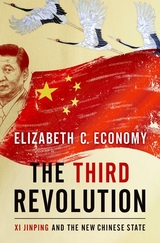
The Third Revolution
Through a wide-ranging exploration of Xi Jinping’s top political, economic, and foreign policy priorities—fighting corruption, managing the Internet, reforming the state-owned enterprise sector, improving the country’s innovation capacity, enhancing air quality, and elevating China’s presence on the global stage—Economy identifies the tensions, shortcomings, and successes of Xi’s reform efforts over the course of his first five years in office.
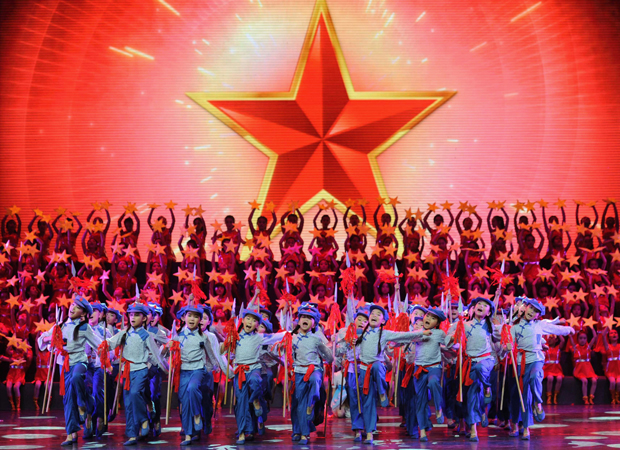
‘Ruling Through Ritual’: An Interview with Guo Yuhua
from New York Review of BooksGuo Yuhua is one of China’s best-known sociologists and most incisive government critics. A professor at Tsinghua University in Beijing, she has devoted her career to researching human suffering in Chinese society, especially that of peasants,...

Censored
As authoritarian governments around the world develop sophisticated technologies for controlling information, many observers have predicted that these controls would be ineffective because they are easily thwarted and evaded by savvy Internet users. Margaret Roberts demonstrates that even censorship that is easy to circumvent can still be enormously effective. Taking advantage of digital data harvested from the Chinese Internet and leaks from China’s Propaganda Department, this book sheds light on how and when censorship influences the Chinese public.

A World in Transition
from Carnegie ChinaAs the world is in the midst of considerable uncertainty and transition, Ambassador William J. Burns points to the emergence of rising powers like China and India, challenges to regional order in the Middle East, and revolutions in new...

Somalia Aims to Be Heard at Upcoming China-Africa Mega Summit
Around 50 African leaders are expected to be in Beijing in September for the upcoming Forum on China-Africa Cooperation (FOCAC) summit. While Africa’s largest and most strategically important countries will likely do very well, receiving huge...

The Fantastic Truth About China
from New York Review of BooksIn 1902, Liang Qichao, a reformist intellectual of the late Qing dynasty, wrote a futuristic story called “A Chronicle of the Future of New China.” In the unfinished manuscript, he depicts Shanghai hosting the World Fair in 1962...
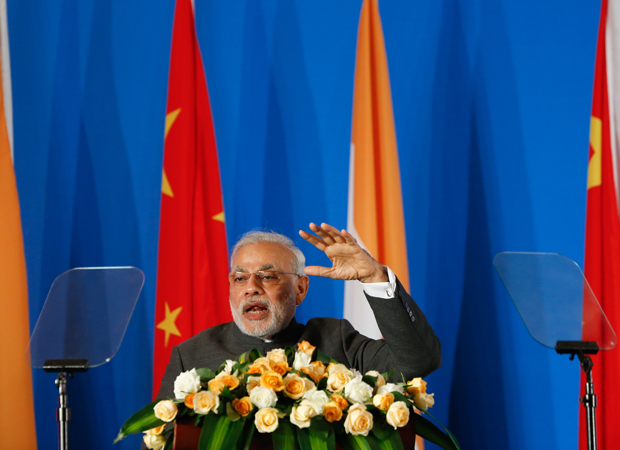
Resetting China-India Relations
from Carnegie ChinaFollowing a year marked by mounting tensions between China and India, President Xi Jinping and Prime Minister Narendra Modi met in Wuhan for an informal summit in April to reset the relationship. Major points of tension dominating China-India...
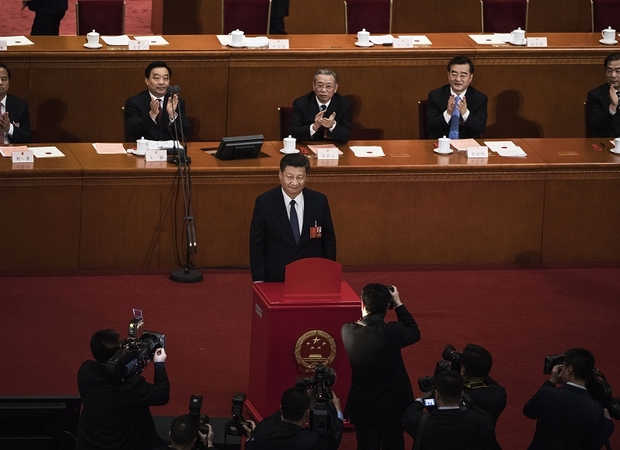
China: Back to the Future
from New York Review of BooksIn 2023, Xi Jinping will conclude his second term as China’s president. Ever since Deng Xiaoping revised the country’s constitution more than 35 years ago, two consecutive terms have been the most that a president can legally serve. But it has...
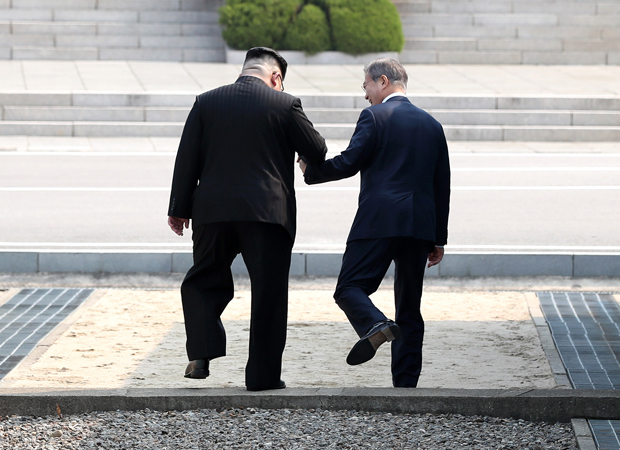
What Comes Next after the Panmunjom Summit?
from Carnegie ChinaKim Jong-un became the first North Korean leader to set foot in South Korea at the Panmunjom Summit in April 2018, setting the stage for President Trump’s meeting with Kim in June. Just days after the summit, Paul Haenle spoke with Tong Zhao, a...
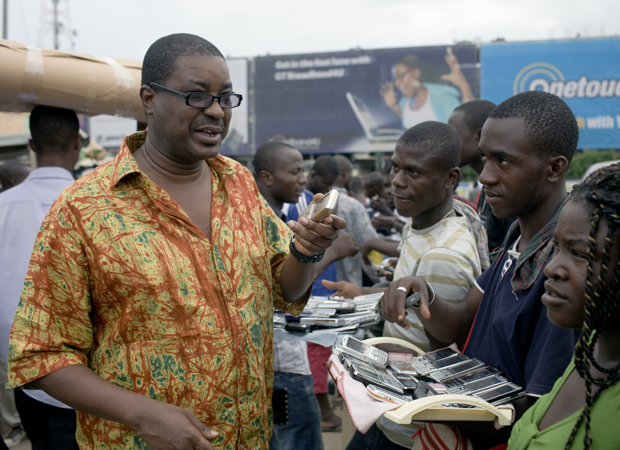
For Better or Worse, Africa’s Digital Future is Tied to China
Chinese tech companies are now the most important players in Africa’s rapid emergence as one of the world’s fastest growing digital markets. People’s Republic of China companies, private and state-owned, are working with local telecom operators...

After-Shocks of the 2008 Sichuan Earthquake
from New York Review of BooksThe province of Sichuan is a microcosm of China. Its east is flat, prosperous, and densely settled by ethnic Chinese. Its mountainous west is populated by poorer minorities, but possesses resources that help make the east rich....
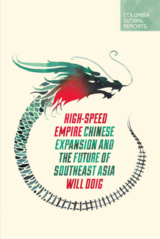
High-Speed Empire
Less than a decade ago, China did not have a single high-speed train in service. Today, it owns a network of 14,000 miles of high-speed rail, far more than the rest of the world combined. Now, China is pushing its tracks into Southeast Asia, reviving a century-old colonial fantasy of an imperial railroad stretching to Singapore, and kicking off a key piece of the One Belt One Road initiative, which has a price tag of U.S.$1 trillion and reaches inside the borders of more than 60 countries.
Policy Analysis on China’s Civil Society Organizations First Quarter of 2018
Civil society organizations in China faced increasingly grim circumstances in the first quarter of 2018. Whether looking at the direct impact of the Law on the Management of Foreign Non-Governmental Organizations’ Activities or the Charity Law,...
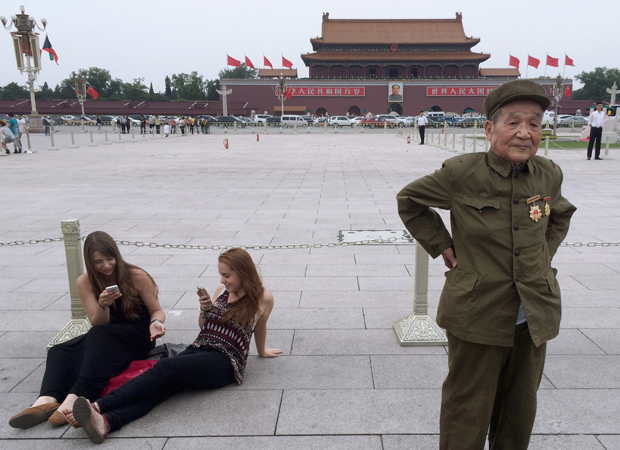
The Rise of Populism and Implications for China
from Carnegie ChinaThe rise of populism in Europe and the United States has had a pronounced impact on domestic politics and foreign policy, as seen in Brexit and the election of Donald Trump. In China, leaders are unsettled by the nationalist and anti-...
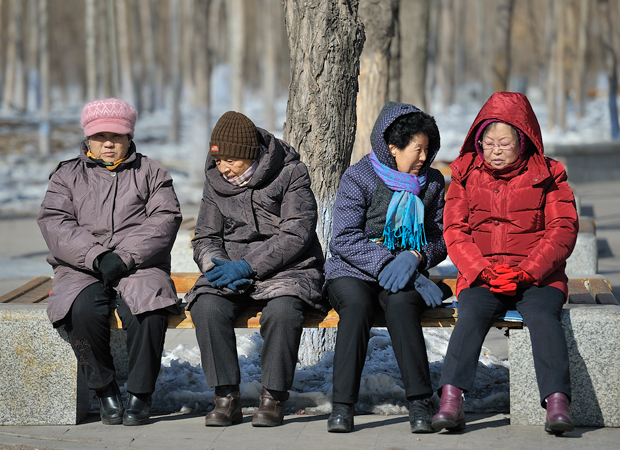
How Africa Benefits from China’s Rapidly Aging Population
China’s rapidly aging population presents a huge challenge for the country as it needs to find new ways to pay for rising healthcare and social welfare benefits. And that’s where Africa may be able to help. Home to one of the youngest populations...
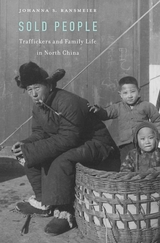
Sold People
Ransmeier draws from untapped archival sources to recreate the lived experience of human trafficking in turn-of-the-century North China. Not always a measure of last resort reserved for times of extreme hardship, the sale of people was a commonplace transaction that built and restructured families as often as it broke them apart.
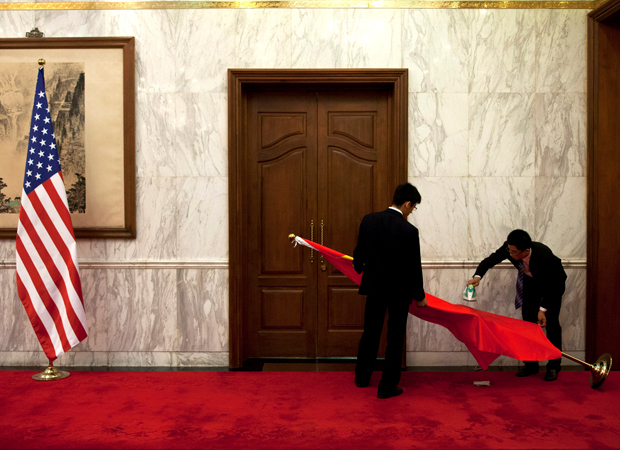
The Corrections Needed in the U.S.-China Relationship
from Carnegie ChinaStephen Hadley, former national security advisor to President George W. Bush, argues that the United States took false comfort in China’s hide-and-bide strategy and failed to recognize that China would increasingly assert itself...

Angola: China’s Risky Gamble in Africa
China has loaned Angola an estimated U.S.$60 billion dollars since the two countries established diplomatic relations back in 1983, making it one of the top destinations for Chinese financing in Africa. Angola is especially attractive for the...

China-Africa Relations in the Xi Jinping Era
For much of the past 20 years, China’s strategy in Africa could be summarized in two words: invest and extract. Today, that is no longer the case. China’s agenda in Africa, and throughout much of the global south, has broadened significantly in...
China Philanthropy Law Report
China’s legal framework is constraining for civil society in general and philanthropic giving in particular. During the current administration of President Xi Jinping, Chinese civil society has come under a great deal of pressure. In terms of...
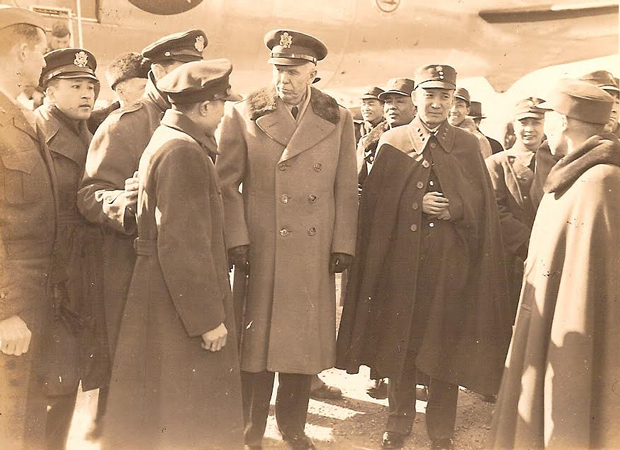
The U.S.-Made Chinese Future That Wasn’t
Soon, such a scene would become unthinkable. It was a cold morning in early March 1946, a rocky airstrip laid along a broad, barren valley in China’s northwest, lined by mountains of tawny dust blown from the Gobi Desert. Six months earlier, one...

‘Black Panther’ Sparks Debate over Anti-Black Racism in China
The seemingly sharp fall in attendance prompted Western media outlets to write a series of articles that suggested Chinese moviegoers objected to Black Panther because of its all-black leading cast. “A torture for the eyes: Chinese moviegoers...
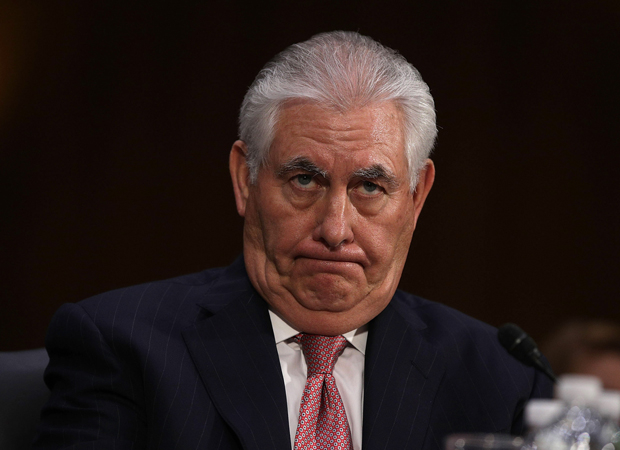
Tillerson’s Last Act: ‘Do as I Say, Not as I Do’ Advice for Africa
There is a certain irony when a U.S. envoy travels to Africa to warn his hosts about the dangers of borrowing money from China. The United States, after all, is the world’s most indebted country and borrows more from China than any other nation...

Young China
A close-up look at the Chinese generation born after 1990 exploring through personal encounters how young Chinese feel about everything from money and sex to their government, the West, and China’s shifting role in the world―not to mention their love affair with food, karaoke, and travel.
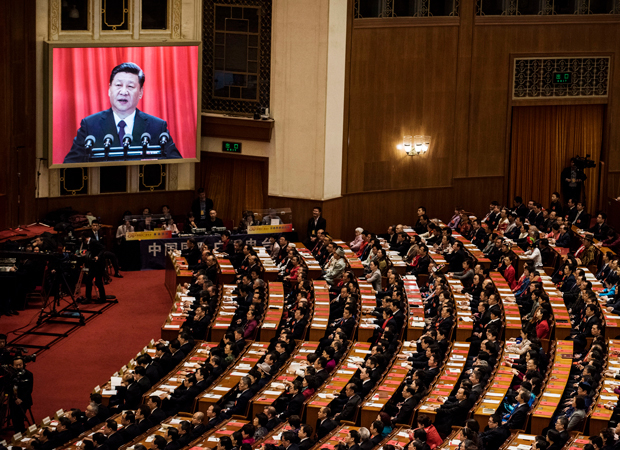
Chairman Xi, Chinese Idol
from New York Review of BooksFor nearly sixty years since it opened in 1959, the Great Hall of the People has been the public focus of Chinese politics, a monumental granite block that extends 1,200 feet along the west side of Tiananmen Square. It is where the country’s...
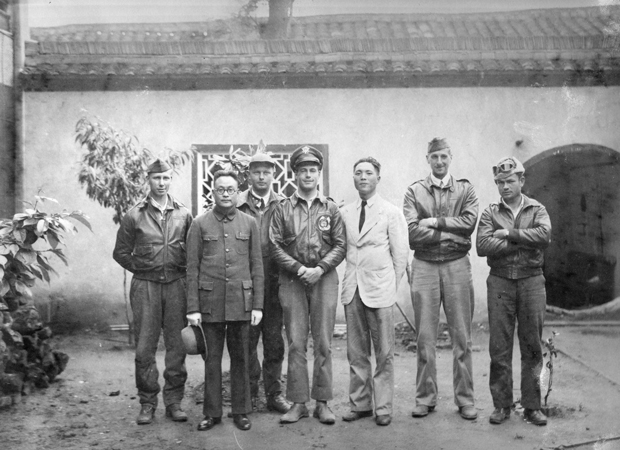
When American Pilots Fell out of the Chinese Sky
from Sinica PodcastThe distinctive shark-toothed fighter planes of the Flying Tigers streaked across the skies of China from 1941 to 1942, as American airmen racked up an impressive string of successes in defending China from Japanese forces. They are so...
Forbidden Feeds: Government Controls on Social Media in China
Based on extensive interviews with writers, poets, artists, activists, and others personally affected by the government’s grip on online expression, as well as interviews with anonymous employees at Chinese social media companies, this report...

A Chinese Mayor-to-Be Tells His Story
When I lived with Tom in the city of Chengdu in 2015 and into 2016, he was a 23-year-old probationary member of the Chinese Communist Party, on his way to joining the organization’s nearly 90 million full members. He wanted to embark on a career...

End of an Era
Since the 1990s, Beijing’s leaders have firmly rejected any fundamental reform of their authoritarian one-party political system, even as a decades-long boom has reshaped China’s economy and society. On the surface, their efforts have been a success. Political turmoil has toppled former communist Eastern Bloc regimes, internal unrest overtaken Middle East nations, and populist movements risen to challenge established Western democracies. China, in contrast, has appeared a relative haven of stability and growth.
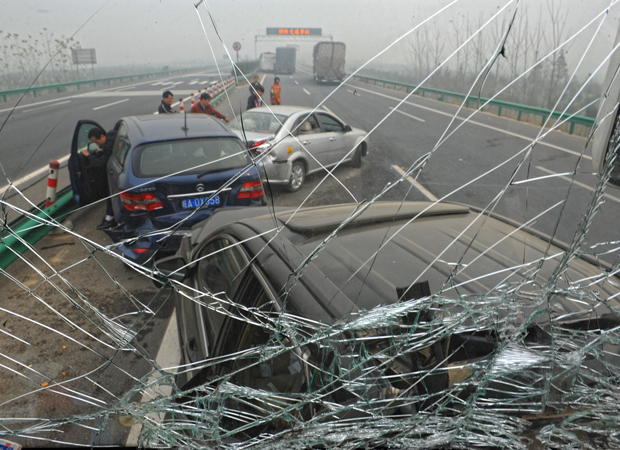
Courts & Torts: Driving the Chinese Legal System
from Sinica Podcast“Having read hundreds and hundreds of these cases, I have decided that I’m never going to drive in China.” That is what Benjamin Liebman, the director of the Center for Chinese Legal Studies at Columbia University, concluded after his extensive...
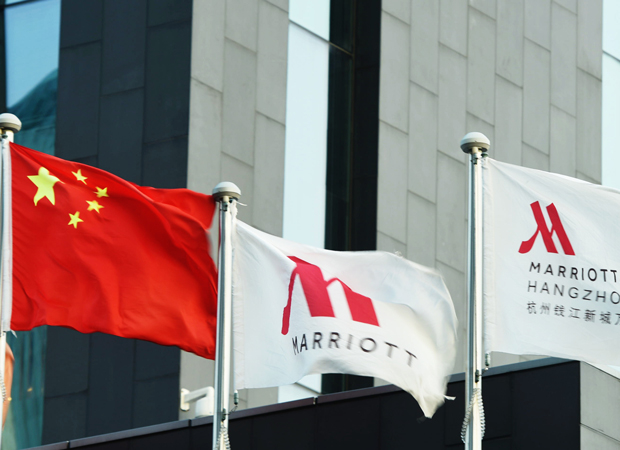
The Brands That Kowtow to China
from New York Review of BooksThere’s been no joking as the apologies to China have come thick and fast in recent weeks, issued not by teenage singers but by some of the largest and richest multinational corporations in the world—the German luxury car manufacturer Daimler,...

Can Chinese Journalists Criticize the Party-State?
from Sinica PodcastOutside observers typically view China’s media as utterly shackled by the bonds of censorship, unable to critique the government or speak truth to power in any meaningful sense. In part, this is true. Censorship and other pressures do create “no-...
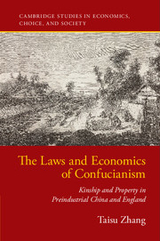
The Laws and Economics of Confucianism
Cambridge University Press: Tying together cultural history, legal history, and institutional economics, The Laws and Economics of Confucianism: Kinship and Property in Pre-Industrial China and England offers a novel argument as to why Chinese and English pre-industrial economic development went down different paths.
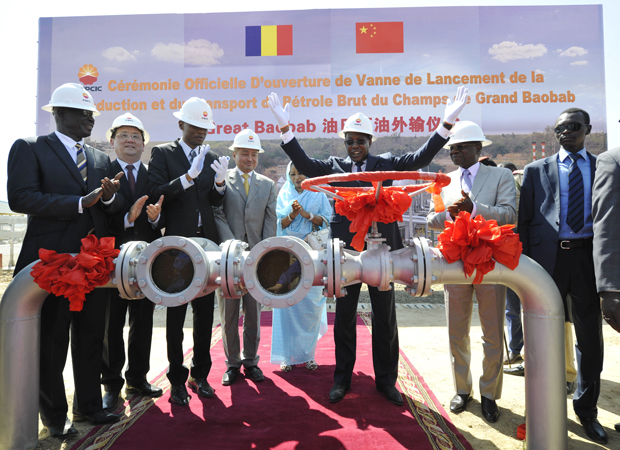
Hong Kong Millionaire’s Arrest Exposes Chinese Corruption in Africa
Former Hong Kong Secretary for Home Affairs Patrick Ho Chi-ping pleaded not guilty last month to corruption charges brought by a U.S. federal court in New York after he was accused of offering bribes worth a total of U.S.$2.9 million to prominent...
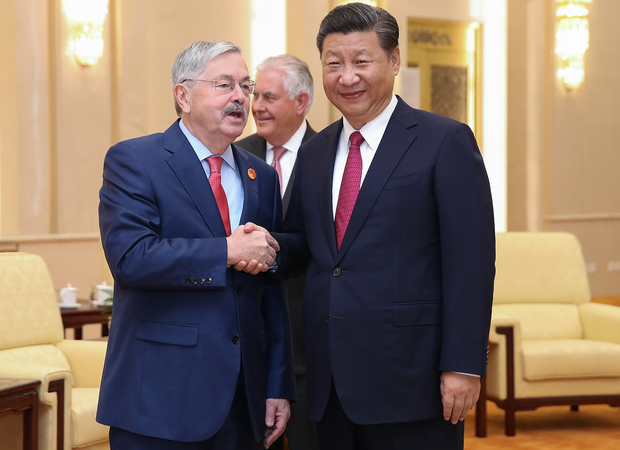
China’s Rise and America’s Myopia
from Sinica PodcastChina, as we say at the beginning of each Sinica Podcast episode, is a nation that is reshaping the world. But what does that reshaping really look like, and how does—and should—the world react to China’s role in globalization?
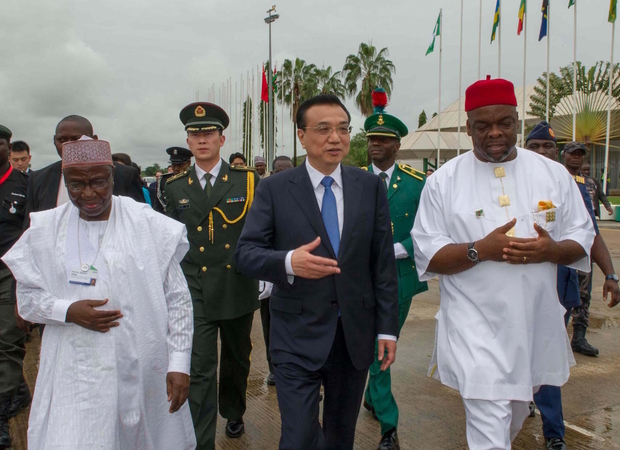
Where China’s Leaders Go in Africa May Surprise You
Over the past 10 years Chinese leaders have made 79 official visits to 43 different African countries, according to new data from the Beijing-based consultancy Development Reimagined. Where the senior leadership goes offers some...

Leftover in China
Forty years ago, China enacted the one-child policy, only recently relaxed. Among many other unintended consequences, it resulted in both an enormous gender imbalance—with predictions of over 20 million more men than women of marriage age by 2020—and China’s first generations of only-daughters. Given the resources normally reserved for boys, these girls were pushed to study, excel in college, and succeed in careers, as if they were sons.




